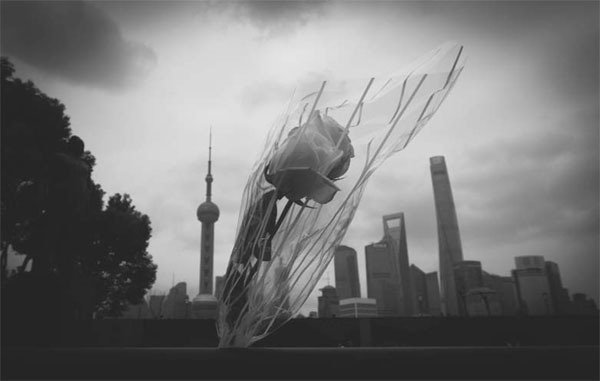Stampede hurts city's image
Updated: 2015-01-16 13:18
By Li Yang in Shanghai(China Daily USA)
|
||||||||
The stampede that killed 36 people in Shanghai on the last night of 2014 has left a very bad image for a city that China has vowed to build to into a global center city.
Shanghai authorities have not apologized for that preventable accident until now. The city's Party chief, Han Zheng, urged his subordinates to draw painful lessons from the accident. It is estimated nearly 1 million people flocked to the Bund, a narrow square to the west of the Huangpu River that night. Only several hundred police were present to maintain order.
Mayor Yang Xiong said: "We should mobilize all forces to ensure public security, not be afraid of making excessive efforts."
But the city governors' "excessive efforts" have been greeted with considerable backlash from the public after the government suspended all big commercial and business activities in the city for security concerns, including the Yuyuan Park Lunar Lantern Festival, a national cultural event that has taken place for 20 years without any big accidents.
The government is giving up eating for fear of choking, said many local residents on social media, criticizing the authority's measures as simple and crude.
The Shanghai authority's overreaction is understandable because the central authority in Beijing has not called local governors into account. Only a district governor in Huangpu, where the stampede happened, has stood out so far, accepting blame from the public and the Shanghai city government.
A disciplinary inspection team dispatched by the central authority, an important tool in digging out local corrupt officials in the anti-graft campaign started by Chinese President Xi Jinping two years ago, had arrived in Shanghai months before the stampede.
The team said in its report on Oct 30 that some senior officials in Shanghai make huge profits from their power. It is believed the stampede, which happened hours after Xi delivered his well-prepared New Year's greetings to the country, may trigger an earthquake in official circles in Shanghai, which has contributed a number of state and Party leaders in recent history.
The stampede incident in Shanghai exposes the weak management of Chinese cities.
Running cities was actually a concern of the Communist Party of China after winning China's civil war (1945 to 1949). The Party ran cities by separating them from the villages in a planned economy copied from the former Soviet Union. Urban residence registration, or hukou in Chinese, is strictly controlled to ensure the urban residents have enough food and basic public services.
Running a city became more difficult after the early 1980s when the peasants were allowed to work and live in cities without access to citizen welfare. The difficulty was controlling the peasants in cities.
Yet after 300 million peasants made their way into the cities in the recent 10 years, especially several large ones like Shanghai, Beijing, Shenzhen, and Guangzhou, the main challenges are how to distribute limited public resources and services fairly in overpopulated cities, how to ensure public safety in case of natural disasters, accidents and disease epidemics and how to cure such "city illness" as traffic congestion and environmental pollution.
To relieve traffic pressure, the Shenzhen government banned citizens from registering newly bought cars 15 minutes after announcing the decision last month. To make the city look better, Guangzhou government used sprinklers to drive vagrants from their nests under the viaducts early this month.
To win a title as national clean city, Jinan, the capital of Shandong province, closed all of its eateries and small shops days before and during the visit of inspectors.
In Beijing, hundreds of illegal parking lots operate regularly and openly. And a two-hour heavy rain killed 77 people in 2012.
Last week, in Haikou, the capital of Hainan, a marathon with 10,000 runners paralyzed the city's traffic system because of poor management. But in Tokyo and Hong Kong, marathons with several times more runners only provided fun for locals, not trouble.
Many city governments in China plan to build their cities into smart cities with the help of advanced technologies, such as the Internet. However, unless the governors become smart and the governments are smartly organized, technology will be useless.
liyang@chinadaily.com.cn
|
A flower left by Shanghai residents on the Bund to memorialize the deadly New Year's Eve stampede. Gao Erqiang / China Daily |
(China Daily USA 01/16/2015 page6)
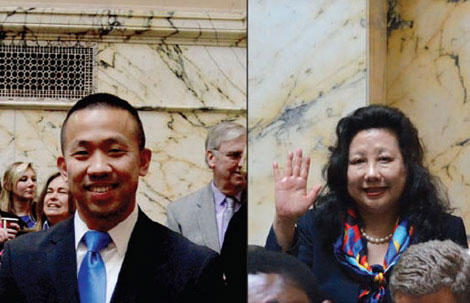
 Two Chinese-American reps sworn in
Two Chinese-American reps sworn in
 Mental illness no handicap to Nanjing artists
Mental illness no handicap to Nanjing artists
 Kashgar's diversity of cultures
Kashgar's diversity of cultures
 Best wedding snaps in 2014
Best wedding snaps in 2014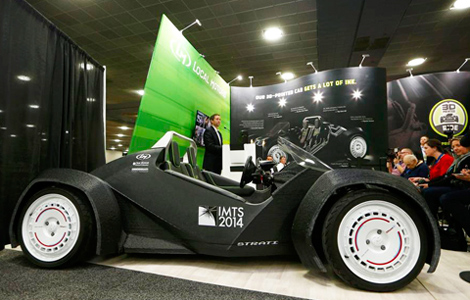
 Fancy sportscars premiere at Detroit auto show
Fancy sportscars premiere at Detroit auto show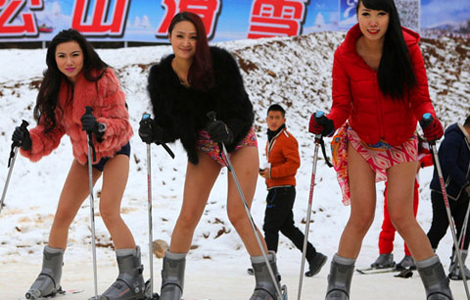
 Looking hot in the cold
Looking hot in the cold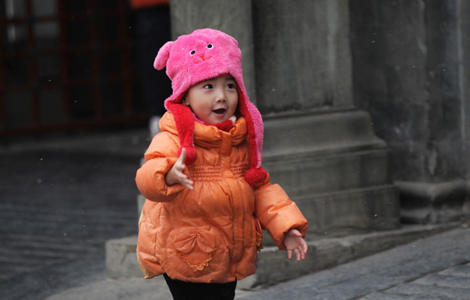
 Beijing sees first winter snow amid heavy smog
Beijing sees first winter snow amid heavy smog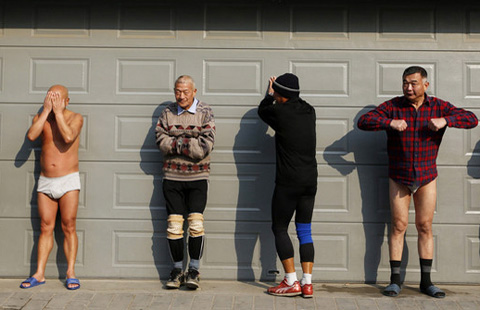
 Elderly swimmers see health benefits in freezing water
Elderly swimmers see health benefits in freezing water
Most Viewed
Editor's Picks

|

|

|

|

|
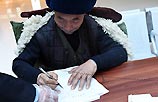
|
Today's Top News
Chinese piece headlines Carnegie recital
US official lauds fight by China vs. graft
China plays mediator in Afghanistan
Chinese tourists boost travel to Los Angeles
Pursuing General Tso and his chicken
Videos show attack on USC student
Two Chinese-American reps sworn in
E-commerce firm Wowo to seek $40m in US IPO
US Weekly

|

|
